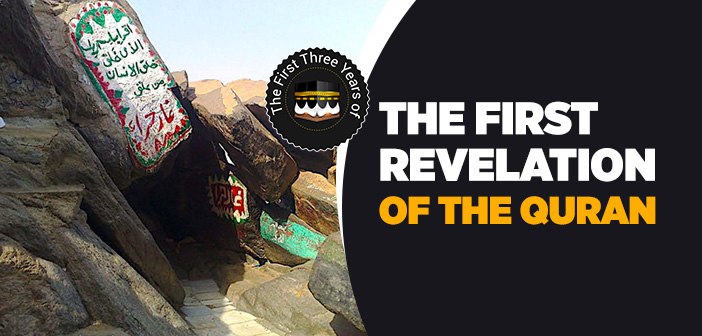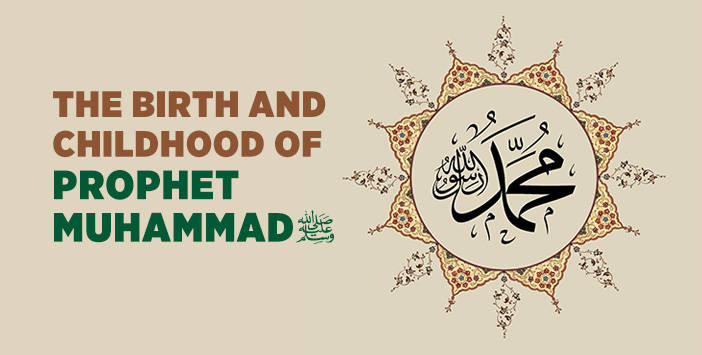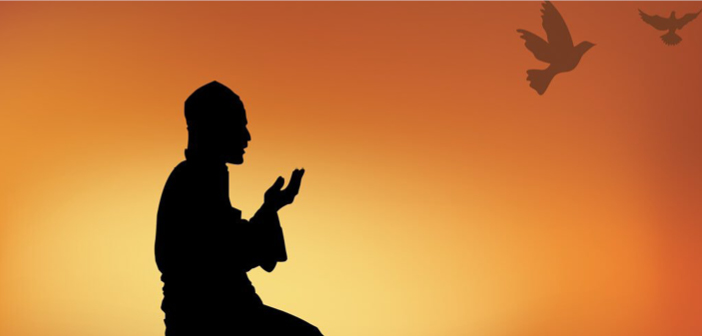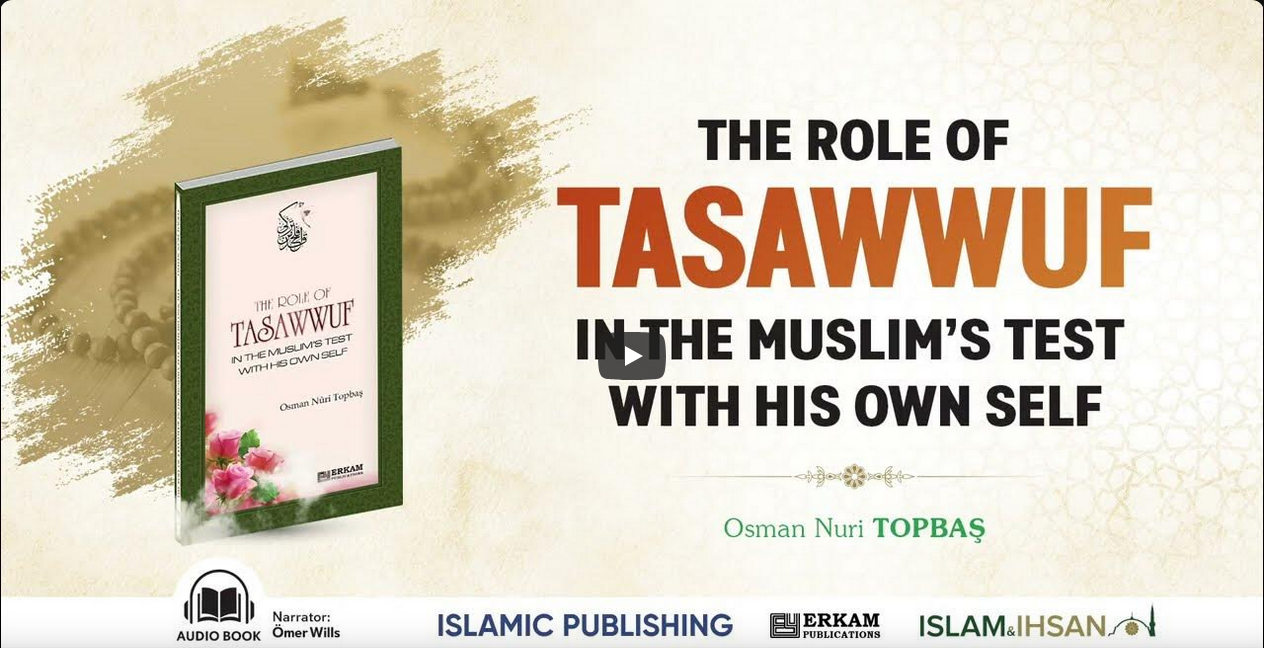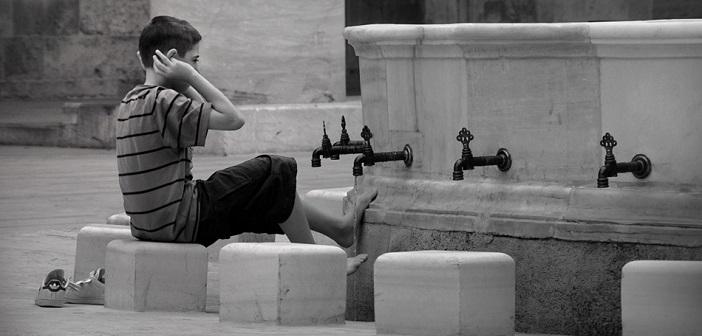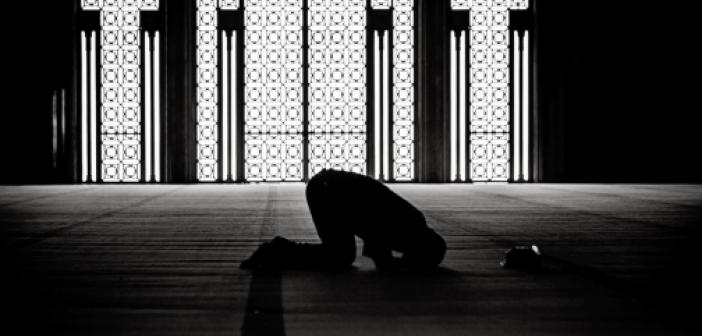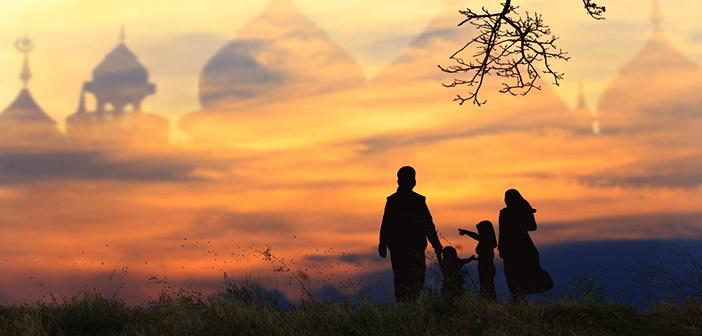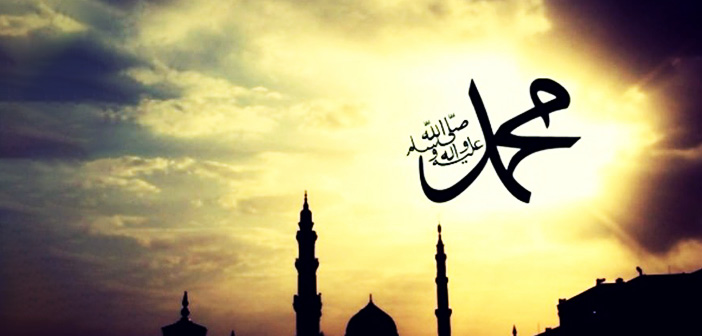
WHAT IS HILYAT’US-SAADAH?
Hilyah means adornments, jewelry, as well as beauty of spirit and expression. By convention, the term also denotes a verbal description of the appearance of the Blessed Prophet -upon him blessings and peace-, inasmuch as allowed by the capacity of the words of mortals.
Nahifi avows:
“Surely, if one writes the hilyah of the Messenger of Allah -upon him blessings and peace- and takes some time to contemplate it, Allah, glory unto Him, will protect the person from illness, troubles and a sudden death. If one takes the hilyah with him on a journey, then he will be under Divine protection throughout.”
Many Muslim scholars have put forth their views with regard to the numerous blessings of the hilya of the Noble Messenger -upon him blessings and peace-. The tradition of memorizing it, motivated by the hope of seeing the Blessed Prophet -upon him blessings and peace- in a dream survives in many Muslim countries to this day.
Having said that, equal to the inadequacy of any verbal depiction of the blessed appearance of the Prophet -upon him blessings and peace-, a beauty described as ‘light upon light’, one must also consider the absolute inadequacy any human being faces when gazing at him and trying to comprehend his reality. A perfect articulation of the beauties of that exceptional being, in whom the Almighty has gathered up all the exquisiteness He has ever bestowed upon mankind, remains impossible. As said by Hakani:
None who knows this has belied,
Among creation, that he has no peer.
These attempted illustrations of the Prophet -upon him blessings and peace-, the Beauty of all Beauties, are simply to console and assuage hearts not fortunate enough to witness the Age of Bliss, ever burning with his yearning. Those who convey the precious descriptions of the Blessed Prophet -upon him blessings and peace- virtually present us with a drop from an ocean. Believers, who have tried to see the ocean through the crystals of those drops, have striven to benefit from his quintessential example, and by virtue of intensifying their love for him, to try to become one with his conduct and morals.
Without a doubt, as compelled by their predisposition, hearts always incline towards the beautiful, with the desire of becoming one with it. The attraction takes hold of the mind, as it exclusively becomes preoccupied with it. Budding in the heart, then, is the desire to become like the beloved, in terms of spirit and morality. Consequent upon taking the beloved as example, one ends up becoming one with him/her. Owing to the tendency of predisposition, it is doubtless that these descriptions of the Prophet -upon him blessings and peace- are sure to increase love and enthusiasm towards him.
As a matter of fact, Hasan –Allah be well-pleased with him- uses the following words to describe his emotional state when asking for a description of the Blessed Prophet from his foster uncle Hind ibn Abi Hala –Allah be well pleased with him-:
“My uncle Hind ibn Abi Hala used to describe the Messenger of Allah -upon him blessings and peace- in the most beautiful style. I used to love it when my uncle described him, for my heart to continue being attached to him and stand firm on his path.” (Tirmidhi, Shamail, p.10)
Hasan and Husayn –Allah be well-pleased with them-, who could never have enough of listening to others depict the Blessed Prophet -upon him blessings and peace-, likewise, on many an occasion, heard their father Ali –Allah be well-pleased with him- elaborate his graceful appearance, a description they have passed on to future generations.
Yet it gives reason to wonder as to what portion of the reality of the Blessed Prophet -upon him blessings and peace- could really be conveyed through such depictions? Similarly, one can only comprehend the hilyah in accordance with the intensity of the love within and in line with the limited content words can at best convey.
Thus, notwithstanding our blatant inadequacy in that respect which we humbly confess, we nonetheless wish to present here a drop from the narrations that have trickled down to us that depict the gracious appearance of the Blessed Prophet -upon him blessings and peace-. A concise summary of the said narrations reveal that:
The Blessed Prophet -upon him blessings and peace- was of medium height, closer to tall.
He had a perfectly balanced stature and a well proportioned body.
Having a wide chest and broad shoulders, there was also a seal of prophethood adorning the spot between his shoulder blades.
His bones and joints were largish.
He was of a pinkish white complexion, like a rose. Shiny like light, his skin was softer than silk. His graceful body was always clean, emitting a refreshing scent. Regardless of whether he had put on fragrance or not, his skin and sweat were more elegant than the most exquisite of fragrances. If one were to shake hands with him, his hands would be immersed all day in the Prophet’s -upon him blessings and peace- elegant scent; it was as if roses had gotten their fragrance from him. If the Blessed Prophet -upon him blessings and peace- was to caress a child’s head, one could immediately tell the child apart from others, due to his beautiful scent.
Upon sweating, his skin would resemble a rose sprinkled with dew.
He had a dense beard, which he would not allow to grow more than a handful. Upon his passing away, there were around twenty strands of grey hair on his hair and beard.
His eyebrows were the shape of a crescent, with a fair distance separating both.
Located right between his eyebrows was a vein that would visibly swell, whenever the Blessed Prophet -upon him blessings and peace- got annoyed for something in the name of Truth.
He would brush his pearl like teeth with miswaq, the frequent use of which he would always recommend.
His black lashes were quite long. His eyes were stunningly big; entirely black where black, and entirely white where white. It was as if the hands of the Divine had garnished them with kohl in past eternity.
As exceptional as the perfection of his spiritual composition was the beauty of his physical appearance.[1]
His face would shine like the full moon. Aisha –Allah be well-pleased with her- has said:
“So radiant was the Messenger of Allah’s -upon him blessings and peace- face that, in the dark of the night, I would make use of its light to put a thread through the eye of a needle.”
Between his shoulder blades was a Divine mark attesting to his prophethood. Many a Companion would crave just to kiss it. The disappearance of the seal upon the passing away of the Blessed Prophet -upon him blessings and peace- was accepted as confirmation of his demise.[2]
His blessed body underwent no change whatsoever after his bereavement. Staring at the Light of Being -upon him blessings and peace- behind teary eyes, Abu Bakr –Allah be well-pleased with him- mournfully remarked, moments after he had passed away:
“As your life, so too is your death beautiful, Messenger of Allah”, thereupon placing his lips on the forehead of the Blessed Prophet -upon him blessings and peace-.
It is impossible to adequately describe the profundity of the elegance of his heart.
Never uttering a word in vain, his every word conveyed wisdom and advice. There was not the least place for backbiting and futile talk in his vocabulary. He would talk to people in accordance with their capacities.
He was kind and humble. Although he would never express his joy through excessive laughter, his face always displayed a warm smile to others.
If someone happened to see the Prophet –upon him blessings and peace-, awe would overwhelm him; even a brief conversation sufficed to implant feelings of deep love and affection towards him.
He would treat the righteous with respect, according to their ranks of piety. Receiving a massive share of his kindness and respect were his relatives. It was habitual for him to extend the tenderness he nurtured for his family and friends to the rest of society. He explicitly reminded us of these qualities, saying:
“None of you may become a true Believer until you wish upon your brothers what you wish upon yourselves.” (Bukhari, Iman, 7; Muslim, Iman, 71-72)
He would treat his servants inexpressibly well, feeding them whatever he had and clothing them with whatever garments he himself wore. Generous and compassionate, the Blessed Prophet -upon him blessings and peace- had struck a perfect balance between courage and kindness.
The Messenger of Allah -upon him blessings and peace- was a man of his word and always kept his promises. Superior to all in terms of virtue, intelligence and sharpness, he does truly deserve all the praises one can possibly state. With beauty of appearance coupled with perfection of life, he was a sacred being beyond compare in all creation.
He also carried a perpetual look of sorrow. Withdrawn to an uninterrupted state of contemplation, he only spoke when necessary. Though his spell of silence was lengthy, he would complete every sentence he began, conveying the deepest meaning using the least possible words. His words would come out distinctly, like the beads of a necklace. Though he was born with a gentle predisposition, his stature was nevertheless majestically imposing.
He would never get up from his seat when angry. Besides, he would never get angry, unless there was an infringement of right; and given there was an infringement of which nobody took notice, his anger would not subside until the right was restored. Afterwards, he would once again resume his usual composure. He never got angry on his own behalf; he would never develop a vendetta or become quarrelsome over a personal matter.
He would never enter the household of anyone without permission. Once he returned home, he would divide the time he spent there into three parts: the first was for Allah, glory unto Him, the second for his family and the third for himself, though only by name, as in effect he would spare that time for all kinds of people, both common and eminent, depriving not a single person of his precious time, leaving not a single heart uncaptured.
Each state and deed of the Blessed Prophet -upon him blessings and peace- was an expression of Divine Remembrance.
At mosques, he would assume different places for seating, to prevent others from making a habit of sitting in a particular place, wary of the consecration of certain places and sites. He disliked the adoption of conceited behavior in public. Upon entering an assembly, he would take whatever seat available, insisting others do the same.
Whenever a person wanted something from him in sorting out a particular problem, regardless of the importance of the favor, the Blessed Prophet -upon him blessings and peace- would never feel at ease until that need was taken care of. Given the impossibility of sorting the problem out, then the Noble Messenger -upon him blessings and peace- would not recoil from at least soothing the person with some comforting and heartening words. He was a confidant for all. No matter what their social classes were, whether rich or poor, wise or ignorant, people would receive even treatment next to him, solely from the vantage of being a human being. All his gatherings were environments teeming with kindness, wisdom, manners, patience and trust, first and foremost in Allah, glory unto Him, then in each other.
Never would there be a person explicitly condemned for his shortcomings. When there was a need to warn a particular person, the Noble Messenger -upon him blessings and peace- would subtly and gently hint at it, without breaking the person’s heart.
“Do not celebrate a disaster that befalls your Muslim brother…for through His Mercy, Allah may deliver him from that disaster and test you”, he would say. (Tirmidhi, Qiyamat, 54)
Not only was he ever preoccupied with investigating the concealed flaws of others, he was stern in prohibiting others from getting busy with such ignobility; for Divine decree had banned suspicion of others and inquiring into their hidden faults.
He would not speak, unless it was with an aim to reap the Divine pleasure. Ecstasy would take hold of the assemblies in which he spoke. So enamored would the listeners be while the Blessed Prophet -upon him blessings and peace- spoke, and so intently would they give ear, that in the words of Omar –Allah be well-pleased with him-, had there been a bird perching above any of their heads, it could have remained there for hours on end undisturbed.
The manners and conduct that had reflected onto his Companions were of such force that, more often than not, even asking him questions was deemed to be impudent. Thus they would wait for a desert Arab to perhaps arrive and inadvertently drop in to ask the Noble Prophet -upon him blessings and peace- questions and spark a conversation, from whose blessings and grace they would be in hope of benefiting.[3]
Timid in his presence, there were even those who had waited for two years before plucking up the courage to ask their questions. Due to his imposing appearance, they could not stare at him in the face.
Amr ibn Âs–Allah be well-pleased with him- has confessed:
“Though I spent a lot of time next to the Messenger of Allah -upon him blessings and peace- , the shyness I was overcome with in his presence and the immense feeling of reverence deep inside always prevented me from lifting my head and staring at his sacred and beautiful face to my heart’s pleasure. If they were to ask me, right now, to describe the appearance of the Messenger of Allah, believe me, I could not.” (Muslim, Iman, 192; Ahmad, IV, 199)
A person who wished to describe his unique traits could not help but admit to “never seeing anyone alike, before him or after.”[4]
During his visit of a certain Arab tribe, Khalid ibn Walid –Allah be well-pleased with him- was asked by the chief to explain the Blessed Prophet -upon him blessings and peace-.
“That is impossible”, replied Khalid –Allah be well-pleased with him-. “Words could not suffice!”
“Then at least explain to the best of your ability”, said the chief, prompting Khalid to give the magnificent reply below:
“Let me tell you this much: the Envoy reflects the honor of the Sender. Since the Sender is the Lord of the Worlds, the Creator of the Universe, then you imagine the honor of the Envoy!” (Munawi, V, 92; Qastallani, Mevâhib-i Ledünniyye Tercümesi, p. 417)
Endowed with an immense degree of beauty, awe-inspiring majesty and a dazzling elegance, he really needed neither an extra proof, nor a further miracle to prove the truth of him being the Prophet of the Almighty.
His morals were the Quran, something gracefully elaborated by Muallim Naji:
Embodied in you is the Quran’s beauty, the praise of all things existent,
The Quran is your hilyah written by the Hand of Might
A similar tone reverberates in the words Mawlana Khalid Baghdadi –may his soul be sanctified-, which express how the supreme virtues of the Noble Messenger -upon him blessings and peace- invigorate entire creation:
“How splendidly beneficial he is that thanks to his bountiful existence, pearls billow out of seas, emerald from hard stones and roses from thorns. You would not see a bud that does not smile out of joy, and blossom, in a garden where his beautiful conduct is mentioned.” (Diwan, p. 65-66)
All beauties had united in the Messenger of Allah -upon him blessings and peace-, virtually radiating from his body. Still, nobody has been able to see the beauties of Blessed Prophet -upon him blessings and peace- in their completeness. In the words of Imam Qurtubi:
“The beauty of the appearance of the Messenger of Allah -upon him blessings and peace- never fully transpired. Were the entirety of his beauties to be shown in all their reality, the Companions would not have had to power to gaze at him.” (Ali Yardım, Peygamberimiz’in Şemâili p. 49)
The Noble Messenger’s poet Hassan ibn Thabit –Allah be well-pleased with him- articulates the uniqueness of his nature in the following:
“Messenger of Allah…No eye has seen anyone more beautiful than you. No woman has given birth to anyone more beautiful. You were created remote from all shame and insufficiency, as if you were created in your own liking!”
[1] See Hâkim, III, 10; Ahmed, I, 89, 96, 117, 127; IV, 309; Ibn Saad, I, 376, 412, 420-423; II, 272; Ibn Kathir, al-Bidaya, VI, 31-33; Tirmidhi, Shamâil, p. 15.
[2] Tirmidhi, Shamâil, p. 15; Ibn Saad, II, 272.
[3] Ibn Saad, I, 121, 365, 422-425; Haythamî, IX, 13.
[4] Ahmed, I, 96.
Source: Osman Nuri Topbaş, The Prophet Muhammed Mustafa the Elect, Erkam Publications



